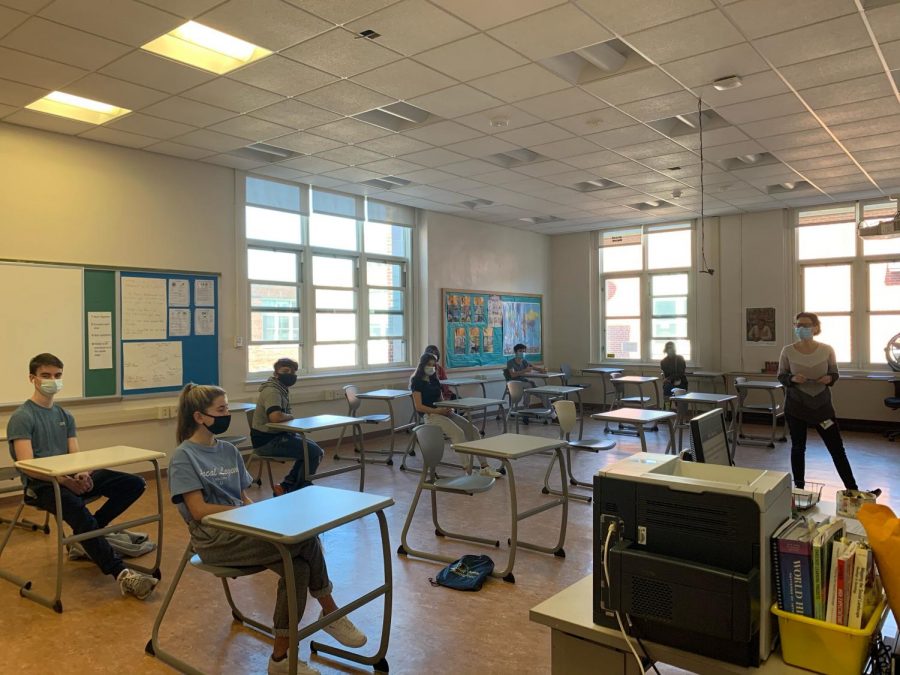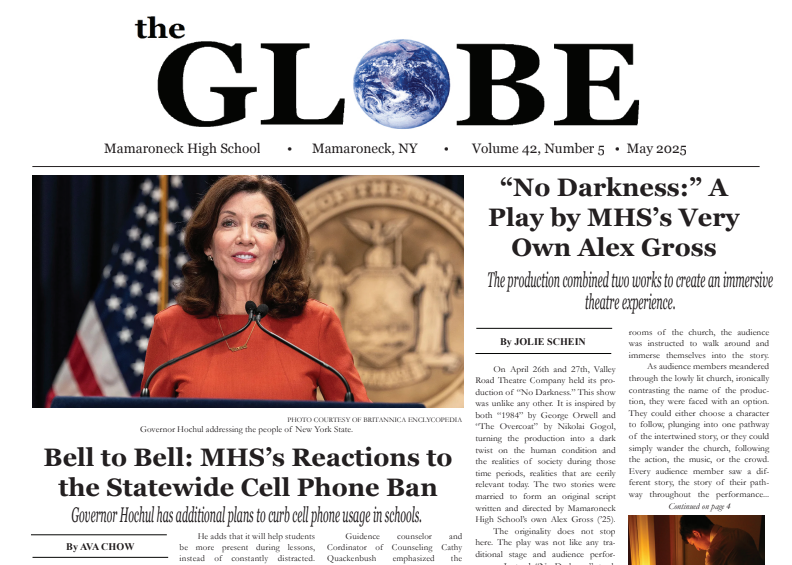Is Advisory Helpful for Students?
Mrs. Katz’s advisory class on a Focus Friday.
November 11, 2020
In many ways, school this year has been much different from previous years. Here at MHS, there have been more than a few unique changes, from the one-way overpass to the socially-distanced, shortened class periods. Another relatively noticeable change, however, is the implementation of a bi-monthly advisory period for all MHS students. This advisory period is designed to help students adjust, and according to Ms. Clain “build community and attend to their social and emotional lives”. The Globe staff, however, had mixed views on the topic.
Advisory, they said, is minimally effective in serving MHS students’ needs. The lessons have been covering remedial topics that high school seniors are already quite well-versed in. One case in point, the most recent lesson consisted of a well-intentioned yet seemingly out of touch anti-bullying lesson. Of course, anti-bullying messaging is important, but how valuable is a short video stressing kindness to an audience of unenthused high school seniors? Especially considering we have been in the district for 13 years, and will be gone in a few months? Anecdotally, the Globe staff notices almost negligible participation, and attendance has already dropped off dramatically. Additionally, the purpose of Advisory, an open and comfortable place to discuss emotions, is hindered by circumstance. For most students, their advisor is a teacher they have never met. The class is filled with students whom they likely do not know very well. How can this be a comfortable place for students to share?
Globe staff, while acknowledging the obvious limitations of this program, realize the other factors that perhaps support the existence of such a program. Advisory days are days students go in, and are counted as in-person school days from a scheduling perspective. Additionally, across the nation (and region), parents are demanding increased social and emotional support programs for students. Rather than a miscalculation by MHS Administration, advisory is likely more of a necessary step to convince parents that MHS will be a safe and nurturing place for their children to return to school, especially amidst such stressful circumstances. Principal Clain also stressed that it is too early to judge the efficacy of Advisory, considering we are only three sessions in. According to her, advisory has been especially valuable for 9th graders who are integrating into the new school, and that advisory is an experience that students can make of it what they want. “Kids need to give it a real try. Some kids are definitely going to like it, and some kids have already told us that they like it.”
As we progress, and perhaps become more acclimated and comfortable, the outlook on advisory could certainly change. For now, however, early indicators suggest that it is not as effective as it was designed to be.






